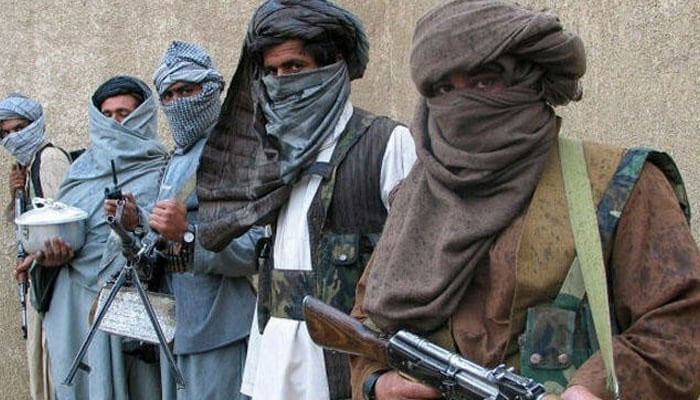‘Terrorism — a common enemy of Pakistan, Afghanistan’
Islamabad : Dr Qibla Ayaz, a member of the Shariat Appellate Bench, has said that respect for writ of the state is the prerequisite for any dialogue or negotiation between the state and group or individual.
Qibla Ayaz made these remarks during the 5th round of Pak-Afghan Religious Scholars Dialogue organised here by Centre for Research and Security Studies (CRSS).
Dr Ayaz said that no state negotiates with terrorists. Tehreek-e Taliban Pakistan (TTP) - declared as Fitna al Khawarij - by the government of Pakistan has contributed to severe violence in the country including attacks on civilians and community elders and security forces. While the TTP’s presence in Afghanistan is an acknowledged reality, Pakistani stakeholders believe that the Taliban government could play a constructive role in addressing this threat to Pakistan’s national security and its relationship with Afghanistan.
He highlighted that internationally accepted educational models such as Indonesia’s could be adapted in Afghanistan to provide a curriculum that aligns with both sharia guidelines and modern standards without requiring an extensive overhaul. This approach was suggested as a pragmatic response to the complexity of revising hundreds of books. The Afghan government must consider the international asks on the matters of girls and women rights to work and education, reversing restrictions on their fundamental rights can actually pave way for their recognition by the global communities including states and citizens, whereas conditioning education on international recognition will create more obstacles to the acceptance and might even risk reducing international aid and support to the country already undergoing severe humanitarian crisis.
The participants acknowledged that terrorism is a common threat and underlined counter-terrorism cooperation between two sides to jointly tackle the threats to both sides’ national as well as regional security. They appreciated the initiatives like Iqra in Kabul and Aazmaish in Kunduz and suggested to resume education for girls and women while replicating these models of education successfully running in Afghanistan to bridge the gap between the opportunities for education on offer by the state and educational needs of the female members of community. The participants suggested to build special economic zones and create and provide opportunities for participation in the economic activities in border regions between Pakistan and Afghanistan. The absence of such provisions and opportunities makes the youth in the region ever more vulnerable to the influence of extremist groups always ready to thrive on the unemployment and poverty.
-
 Meghan Markle Showcases Princess Lilibet Face On Valentine’s Day
Meghan Markle Showcases Princess Lilibet Face On Valentine’s Day -
 Harry Styles Opens Up About Isolation After One Direction Split
Harry Styles Opens Up About Isolation After One Direction Split -
 Shamed Andrew Was ‘face To Face’ With Epstein Files, Mocked For Lying
Shamed Andrew Was ‘face To Face’ With Epstein Files, Mocked For Lying -
 Kanye West Projected To Explode Music Charts With 'Bully' After He Apologized Over Antisemitism
Kanye West Projected To Explode Music Charts With 'Bully' After He Apologized Over Antisemitism -
 Leighton Meester Reflects On How Valentine’s Day Feels Like Now
Leighton Meester Reflects On How Valentine’s Day Feels Like Now -
 Sarah Ferguson ‘won’t Let Go Without A Fight’ After Royal Exile
Sarah Ferguson ‘won’t Let Go Without A Fight’ After Royal Exile -
 Adam Sandler Makes Brutal Confession: 'I Do Not Love Comedy First'
Adam Sandler Makes Brutal Confession: 'I Do Not Love Comedy First' -
 'Harry Potter' Star Rupert Grint Shares Where He Stands Politically
'Harry Potter' Star Rupert Grint Shares Where He Stands Politically -
 Drama Outside Nancy Guthrie's Home Unfolds Described As 'circus'
Drama Outside Nancy Guthrie's Home Unfolds Described As 'circus' -
 Marco Rubio Sends Message Of Unity To Europe
Marco Rubio Sends Message Of Unity To Europe -
 Savannah's Interview With Epstein Victim, Who Sued UK's Andrew, Surfaces Amid Guthrie Abduction
Savannah's Interview With Epstein Victim, Who Sued UK's Andrew, Surfaces Amid Guthrie Abduction -
 Piers Morgan Supports Bad Bunny As US Lawmakers Seek Action
Piers Morgan Supports Bad Bunny As US Lawmakers Seek Action -
 Jennifer Love Hewitt Reminisces About Workign With Betty White
Jennifer Love Hewitt Reminisces About Workign With Betty White -
 Hilarie Burton Reveals Valentine's Day Plans With Jeffrey Dean Morgan
Hilarie Burton Reveals Valentine's Day Plans With Jeffrey Dean Morgan -
 Cardi B Compares Her Fall To Government At Las Vegas Show
Cardi B Compares Her Fall To Government At Las Vegas Show -
 Harry Styles Silently Deleted Instagram App
Harry Styles Silently Deleted Instagram App




